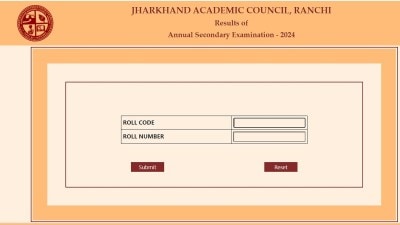- India
- International
Return present
Seema Chishti unpacks SC order which says that a ‘re-convert’ to Hinduism from Christianity would be entitled to quota benefits.
 Supreme Court of India
Supreme Court of India
The Supreme Court ruled on Thursday that a ‘re-convert’ to Hinduism from Christianity would be entitled to quota benefits as long as his great-grandfather was a Dalit, and the ‘community’ accepted his return. SEEMA CHISHTI unpacks the order, and places it in our current context.
What was the case before the court?
In 1984, one K P Manu, a Christian man then aged 24, converted to Hinduism. His great grandfather was a Pulaya (Dalit) Hindu, but his grandfather had embraced Christianity, taken a new name, and married a Hindu Ezhava woman who had converted to Christianity. Manu’s father was Christian, and so was his mother.
After re-conversion, the Akhila Bharatha Ayappa Seva Sangham certified his re-entry as a Pulaya, and the tehsildar issued a caste certificate. However, his availing of facilities available to Hindu Dalits was challenged, and the Kerala High Court upheld the objection. Manu appealed to the Supreme Court. The two-judge bench comprising Justices Dipak Misra and V Gopala Gowda set aside the High Court order, and ruled that Manu was entitled to quota benefits.
So substantively, what does the order do?
It allows the children of second generation converts to Christianity to re-convert to being Dalit Hindus, and avail of benefits such as reservations in government jobs. The court expanded the scope of an earlier judgment passed by a constitution bench of the Supreme Court, saying, “If a person born to Christian parents, who had converted to Christianity from the Scheduled Caste Hindu, can avail the benefits of the caste certificate after embracing Hinduism, there cannot be any soundness of logic that he cannot avail similar benefits because his grandparents were converted and he was born to parents who were Christians.”
[related-post]
Did the court lay down any conditions?
Three. The individual must re-convert to Hinduism; s/he must revert to the specific Dalit caste to which s/he belonged, and return to caste practices; and the “community” must accept the re-conversion.

What was the basis of the order?
The court cited several studies and quotes to establish that converting to Christianity did not take the caste stigma away. It relied heavily on the constitution bench order on Principal, Guntur Medical vs Y Mohan Rao delivered on April 6, 1976, allowing re-coversion to Hinduism to avail of the benefits of caste reservation. It stretched the order to allow even second-generation converts to return to Hinduism to qualify for Dalit reservations, so far not available to Dalit Christians and Dalit Muslims.
What are the larger issues around this order?
Broadly two. One, the ‘ghar wapsi’ debate stirred by the actions of several groups closely linked to the ruling BJP. And two, the ongoing debate on whether Dalits who convert to Christianity and Islam should be accorded benefits that are available to Hindu Dalits.
What is the religion-reservation debate?
The understanding that ‘untouchability’ is alien to Christianity and Islam, and is known only to faiths that originated in the subcontinent, resulted in the Constitution (Scheduled Castes) Order, 1950, which prohibited Dalit converts to Christianity or Islam from being recognised as Scheduled Castes.
This presidential Order was passed in “exercise of the powers conferred by clause (1) of Article 341 of the Constitution of India”, but remains a sticking point in Indian politics even today. Those who claim it is wrong to exclude Christian or Muslim Dalits, say so on the basis of the constitutionally guaranteed equality of all religions, and argue that exclusion amounts to discrimination against non-Hindus.
The National Commission for Religious and Linguistic Minorities, which submitted its report to the Centre in 2007, argued in favour of extending reservations to Dalits of all faiths. However, others argue that once Dalits decide to leave the Hindu fold, it must be accepted that their social and economic lot has improved, and they can no longer avail of benefits of being Hindu without being Hindu — and that it would encourage conversion if reservations were offered to non-Hindu Dalits as well.
So, do Dalit Christians and Muslims not get any reservations?
The Mandal Commission and the Backward Castes Commissions in states recognise several backward caste categories amongst non-Hindus. They do get reservations, but as backward castes, not as Dalits or SCs.
More Explained
EXPRESS OPINION
Apr 19: Latest News
- 01
- 02
- 03
- 04
- 05








































